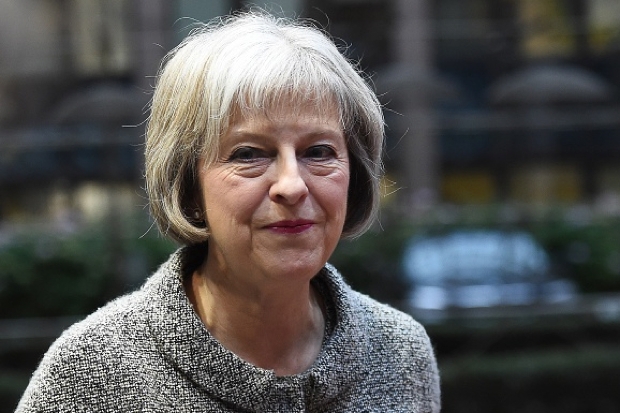I take exception when Theresa May tells the police they aren’t doing enough to tackle domestic abuse. ‘Victims of abuse are still being let down and reports are not being taken seriously enough,’ she said. ‘The right skills and commitments to protect the vulnerable are still not held by every police officer.’ It’s not the police that are letting victims of domestic violence down, but the government. Give the police the tools and they will get the job done.
I served for nine years with the Nottinghamshire Constabulary between 1978 and 1987, a city known for its domestic violence. I saw first hand more than my fair share and often wish I hadn’t. Although it would be unfair to say it was all directed by men against women, the majority of it is. I have seen woman with broken noses, blackened eyes and teeth smashed out. I’ve seen pregnant women kicked in the stomach by men so brutal it defies understanding.
We always attended, whether the call was from a victim or a neighbour. I tried to establish what had happened quickly and then take appropriate action. Sometime it was obvious what had happened , at other times not. I once saw a man sitting perfectly still with a bowl of Rice Krispies over his head for an hour so he could prove his wife had tipped them over him. I have also seen a woman without a single injury, trembling with fear. She admitted that her partner had never touched her, he didn’t need to because he ruled her by terror, destroying her confidence and making her feel she was worthless. No police officer can see that level of abuse and not feel moved by it and want to do something about it.
I am sure, as the Home Secretary said, there are a handful of officers still caught up in the canteen culture who make stupid remarks or take advantage of a person when they’re at their most vulnerable. But they are few and far between in my experience. I witnessed nothing but concern and a determination to stop the violence and bring the offender to trial. However, there was one problem that affected many officers’ approach when it came to domestic violence – something that the government could easily fix.
Once you have removed the victim from the scene, arrested the abuser, taken a statement from her and any other witnesses (time consuming but necessary), there is more than a fifty-fifty chance that the following day, or shortly afterwards, the victim will come to the police station either on her own or with her abuser to withdraw the complaint. This happened to me and my colleagues continually and is a major reason the police are sometimes less eager than they should be to get involved, knowing their efforts could be scuppered the next day.
After the initial complaint is made, the perpetrator is released and will often then intimidate the victim – in some cases, her children as well – to get her to withdraw the complaint. If she does, the cycle of abuse usually continues, with the abuser knowing that even if he is unlucky enough to be arrested again he will just bully the victim into withdrawing the complaint. We need to change this.
Once a complaint has been made, the power to withdraw it should be removed from the victim. That would mean that, no matter how much effort is made to intimidate her, the matter will go to court and be heard by a judge or magistrate. This way, the abuser will quickly realise that no matter how threatening he becomes, nothing can be done to stop the case going to court.
If the government made this small change to the law, it would increase police morale no end, making them far more likely to pursue and prosecute the perpetrators. If the victim wanted to withdraw the complaint in court, she would have to explain why. And if a judge or magistrate felt that there has been intimidation and the evidence stands up, they could decide to proceed with the case regardless. Even if the charges were dropped, I think the person involved should still have to go to court and explain his behaviour. It would then be a matter of record and could be used against him if he re-offended.
Come on, Theresa. Stop blaming the police for failing to take domestic violence seriously and give them the powers they need to deal with these violent offenders. If you do that, you will see a big change in the attitude of the police towards domestic violence.
Nigel McCrery is an English screenwriter and ex-police officer.






Comments